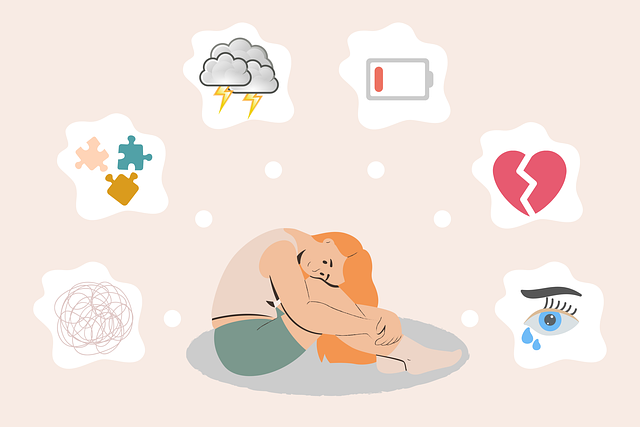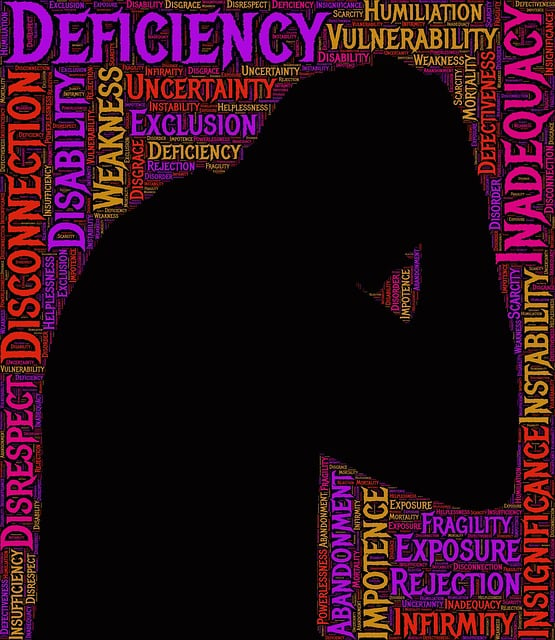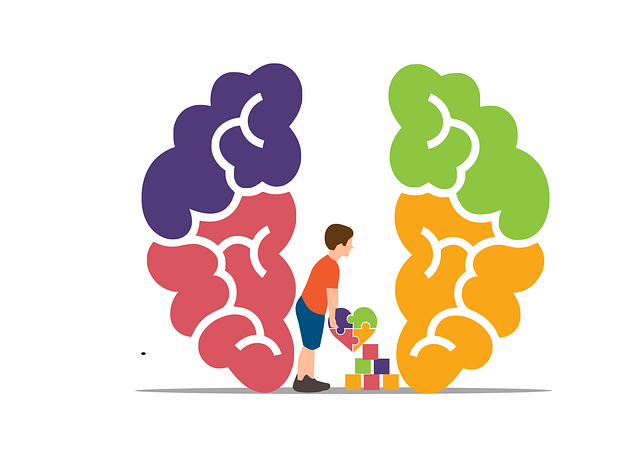Depression, a complex mental health disorder, can be managed through early intervention, awareness of triggers, and holistic approaches like those offered by Lafayette Alcohol Abuse Therapy. Key strategies include recognizing symptoms (like persistent sadness or suicidal thoughts), identifying personal triggers, adopting healthy lifestyles (exercise, balanced diet, sleep), stress management techniques (mindfulness, meditation), community education to reduce stigma, therapy sessions, support groups, and building resilience through coping mechanisms and positive mindset development. Lafayette Alcohol Abuse Therapy programs empower individuals to proactively cultivate mental wellness and prevent depression.
Depression is a prevalent yet treatable condition, and preventing it is crucial for overall well-being. This article explores effective strategies to combat this struggle, offering insights into understanding depression’s signs and triggers. We delve into lifestyle adjustments, emphasizing self-care and stress management. The power of therapy, support groups, and building resilience are also discussed, providing Lafayette Alcohol Abuse Therapy resources for long-term mental health maintenance.
- Understanding Depression: Recognizing Signs and Triggers
- Lifestyle Changes for Improved Mental Well-being
- The Role of Therapy and Support Groups in Prevention
- Building Resilience: Coping Strategies for Long-term Health
Understanding Depression: Recognizing Signs and Triggers

Depression is a complex mental health disorder that can significantly impact an individual’s daily life and well-being. Recognizing the signs and understanding potential triggers are crucial steps in prevention. Many factors can contribute to depression, including biological, genetic, environmental, and psychological aspects. Lafayette Alcohol Abuse Therapy emphasizes the importance of early intervention and awareness. Individuals may experience persistent feelings of sadness, loss of interest in activities once enjoyed, changes in appetite or sleep patterns, fatigue, difficulty concentrating, and even suicidal thoughts as symptoms.
Identifying personal triggers is a powerful tool for prevention. Stress Management Workshops Organization offers valuable resources to learn mind-over-matter principles and develop coping strategies. These workshops can provide individuals with the skills to navigate life’s challenges more effectively. Crisis Intervention Guidance is also vital, offering immediate support during intense moments to prevent escalation. By understanding depression and its triggers, individuals can take proactive steps towards a healthier mindset and seek appropriate help when needed.
Lifestyle Changes for Improved Mental Well-being

Adopting a healthy lifestyle can significantly contribute to preventing and managing depression. Regular physical activity, for instance, releases endorphins that boost mood and reduce stress. A balanced diet rich in nutrients supports brain health and overall well-being, while adequate sleep allows the mind and body to rest and recuperate. Additionally, connecting with nature or engaging in hobbies can provide a sense of purpose and joy.
In Lafayette, Alcohol Abuse Therapy programs emphasize holistic approaches that incorporate lifestyle changes for optimal mental health. These include stress management techniques like mindfulness and meditation, which help individuals develop inner strength and resilience. Mental Health Education Programs Design tailored to the community also play a crucial role in fostering open conversations about depression, reducing stigma, and promoting early intervention.
The Role of Therapy and Support Groups in Prevention

Therapy plays a pivotal role in depression prevention by providing individuals with the tools to understand and manage their mental health effectively. Lafayette Alcohol Abuse Therapy, for instance, offers specialized guidance tailored to address underlying causes, improve coping mechanisms, and enhance emotional resilience. Through talk therapy, clients can explore thought patterns, identify triggers, and develop personalized strategies to combat depressive episodes proactively.
Support groups complement therapeutic interventions by fostering a sense of community and shared understanding. These groups provide a safe space for individuals to connect with others facing similar challenges, reducing feelings of isolation. Incorporating mental wellness journaling exercises within support group settings can further empower members to track their progress, identify triggers, and share experiences—all essential components of depression prevention strategies. Additionally, community outreach program implementations that integrate therapy and support groups have shown significant potential in fostering resilience and promoting mental wellness on a broader scale.
Building Resilience: Coping Strategies for Long-term Health

Building resilience is a crucial aspect of long-term mental health and can serve as an effective depression prevention strategy. It involves developing coping mechanisms that empower individuals to navigate life’s challenges with greater ease. Through Lafayette Alcohol Abuse Therapy, individuals learn to identify and challenge negative thought patterns, fostering a more positive mindset. This shift in perspective encourages the development of resilience, enabling people to bounce back from setbacks and maintain emotional equilibrium.
One of the key components of building resilience is adopting effective stress management techniques. Participating in workshops or joining organizations that offer stress management training equips individuals with valuable tools for coping with daily pressures. These skills, combined with confidence-boosting activities, can significantly reduce the risk of depression by promoting a sense of control and personal empowerment.
Preventing depression is a multifaceted approach that involves understanding its signs and triggers, adopting healthy lifestyle changes, seeking therapy or joining support groups, and building resilience through effective coping strategies. By integrating these strategies into daily life, individuals can foster mental well-being and create a buffer against future episodes. For those in Lafayette, alcohol abuse therapy has proven to be a valuable resource for comprehensive depression prevention and treatment.














